How I Keep Deer Out Of My Garden Naturally, A Good Deer Repellent
For more than sixteen years I have been keeping deer out of my garden naturally using a good homemade deer repellent that I make myself. I have neighbors often ask me how I do it, and I have shared my deer repellent recipe with them. I will share with you my homemade deer repellent recipe and explain how I use it to effectively to stop deer from eating my garden plants. hostas, roses, geraniums, lilies, and other flowers.
What natural ingredients makes the best good homemade deer repellent recipe?
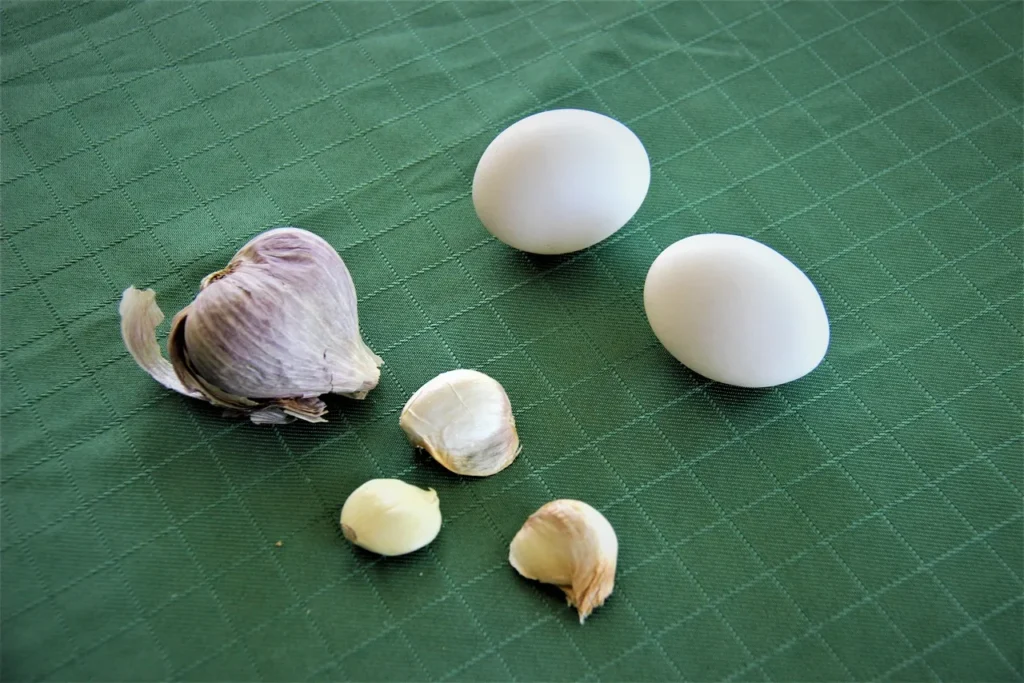
I have found by years of making and using my own homemade deer repellent, that a good deer repellent consists of two main ingredients that most people have in their home, those two ingredients are eggs and minced garlic. I have been successful in stopping deer from eating my garden plants using just these two natural ingredients in deer repellents I have made. In addition to this base of eggs and garlic, many other things can be added to this recipe to help make your repellent be more effective at keeping deer away.
What can be added to make a homemade deer repellent more effective at keeping deer away?
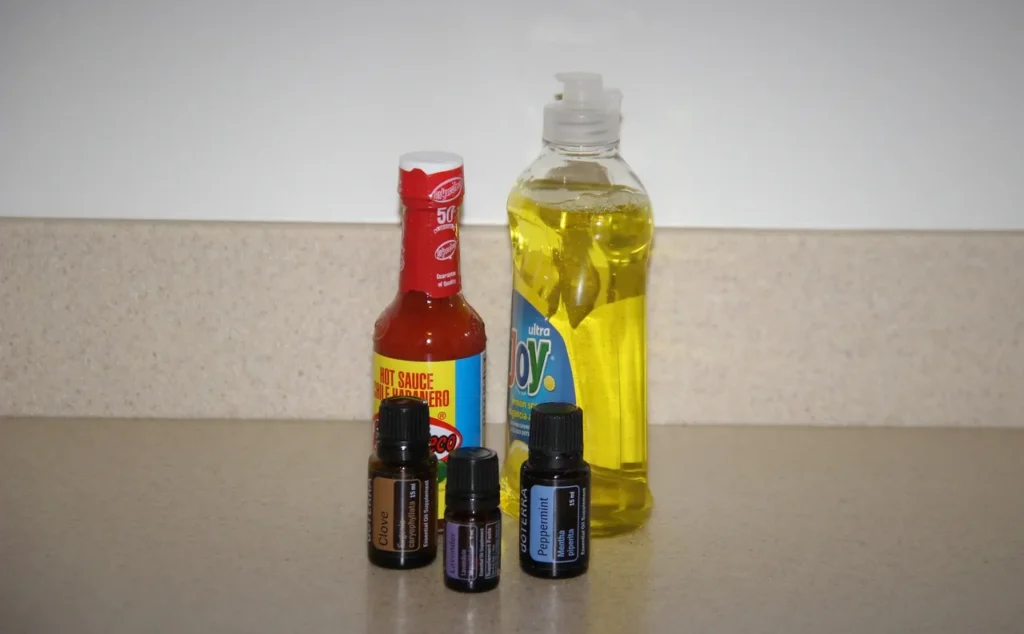
There are many other ingredients that may be added to this repellent base that will help to further repel deer. Milk or yogurt are helpful things to add because they contain casein which along with the eggs helps the repellent stick to and last longer on the plants, and harder to wash off. Essential oils like clove, rosemary, thyme or peppermint, or other oils may also be helpful as an additional smell deterrent. You may want to add hot sauce or cayenne pepper as a taste deterrent, especially for those young fawns that seem to nibble on everything, as they try to decide what they like best. A little dish soap can also be added, and serves two purposes, as an additional smell deterrent, but it also serves as a surfactant or spreader sticker to help the repellent cover and stick to the plants.
Here Is a good recipe that works well.
1 dozen large eggs (about 2 1/2 cups)
1/2 cup whole milk
2 Tablespoons minced garlic
This will make just over three cups of concentrate, and when diluted at one cup per gallon, will make three gallons of ready-to-use deer repellent spray.
Other ingredient you may add if you would like
1 teaspoon essential oil (any single or a combination of clove, rosemary, thyme, or peppermint)
1 Tablespoon hot sauce or cayenne pepper
1 Tablespoons liquid dish soap
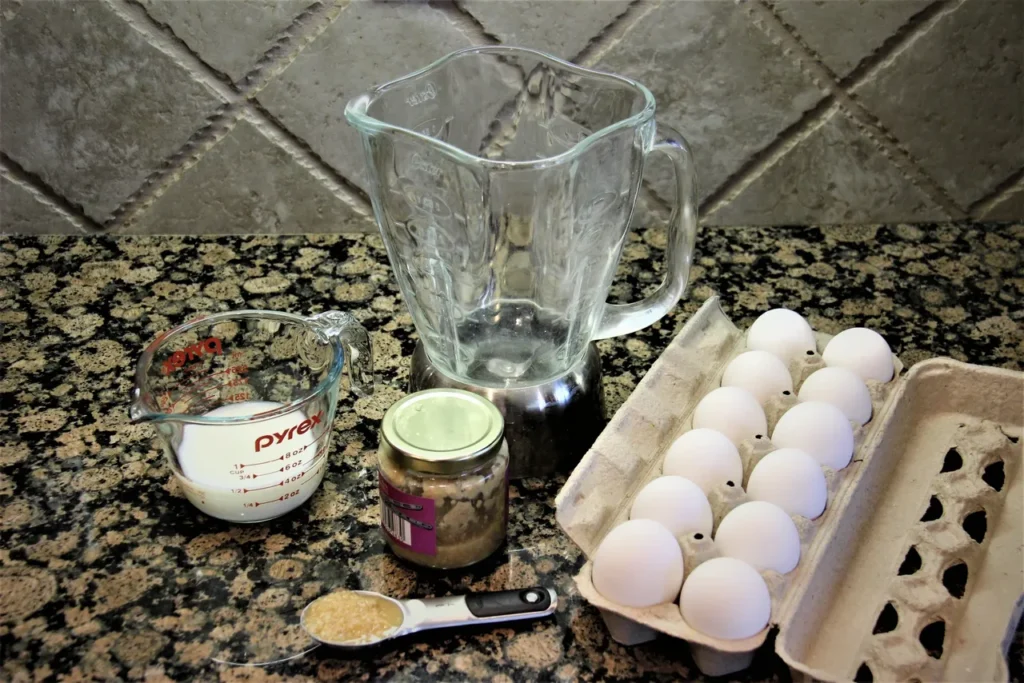
Diluting concentrate into a ready to use spray.
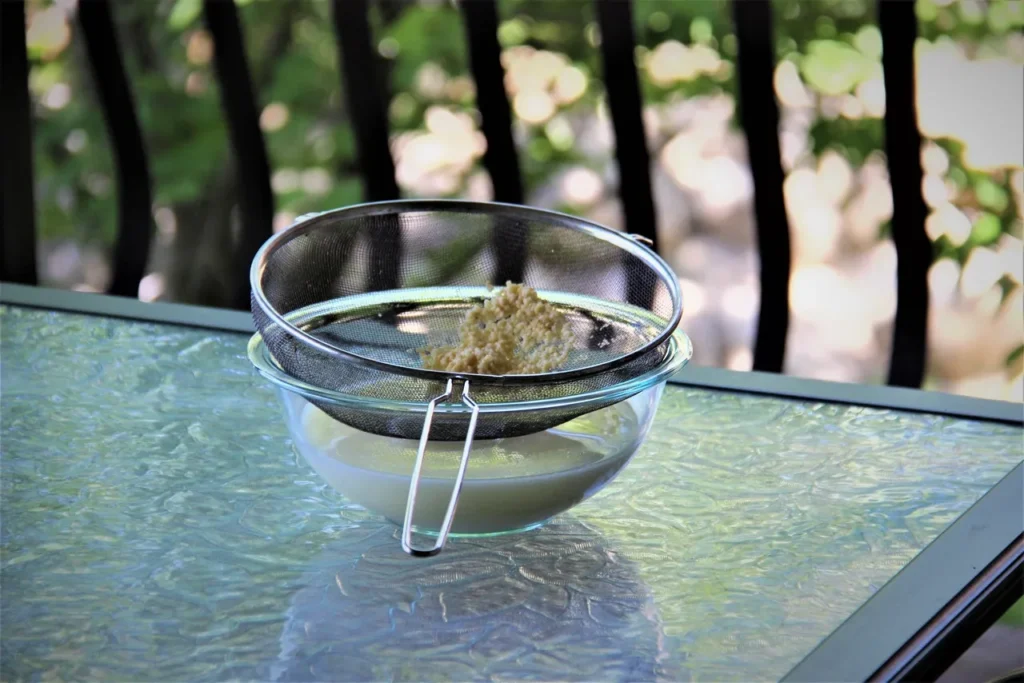
I use one cup of this concentrated mixture to one gallon of water and mix it in a separate container. After mixing it together, I strain it using a fine strainer or screen, I strain this several times pouring from one container to another, to make sure that all of the garlic is removed to prevent it from clogging my sprayer. If you have problems with your sprayer clogging, you may need to use a finer strainer. The paint store usually has paper funnels with a fine mesh that may be used, or you can try using cheesecloth. I found that using a coffee strainer didn’t work well because much of the repellent saturated the strainer and was wasted.
How to apply deer repellent to your plants.
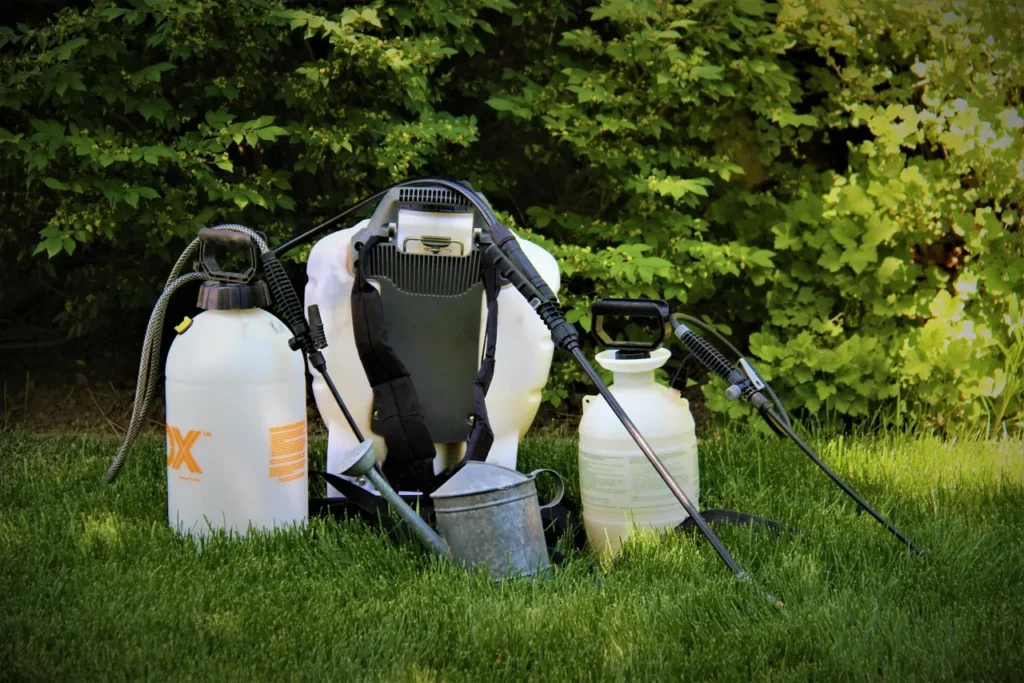
I use a pump-up backpack sprayer to spray the repellent on my garden plants that I don’t want eaten. I find that spraying all the plants in my garden works best, (even the ones the deer don’t usually eat), this maximizes the smell and has helped to keep them away. For smaller areas, you could use a watering can to apply the repellent, but it will be harder controlling how much repellent is applied, so you will generally use more. I recommend spraying every other week, but spraying every three or four weeks, will work, depending on your deer problem, but remember the more often you spray, the more effective it is. I sometimes spray fast-growing plants like roses and grape vines weekly. and If you get lots of rain, or the sprinklers hit your plants, it is a good idea to re-apply more often. Small amounts of rain does not lessen the sprays effectiveness. After the spray dries, it is not real noticeable to humans, but because deer have such a keen sense of smell, they don’t like it and will avoid the area.
Give a try to making you own good homemade natural deer repellent, its not that hard
It really is not hard to make your own homemade deer repellent, however, it does take some time and can sometimes be a bit messy. I know from my own experience that homemade deer repellent works to stop deer from eating garden plants, but you must be consistent in following a regular spray schedule, and thorough in your spraying practices. If this sounds like too much work, trouble and mess for you, there are deer deterrent companies that will provide this service for you on a regular basis, just like having someone mow your lawn for you, or any other yard service.
Leave a Comment